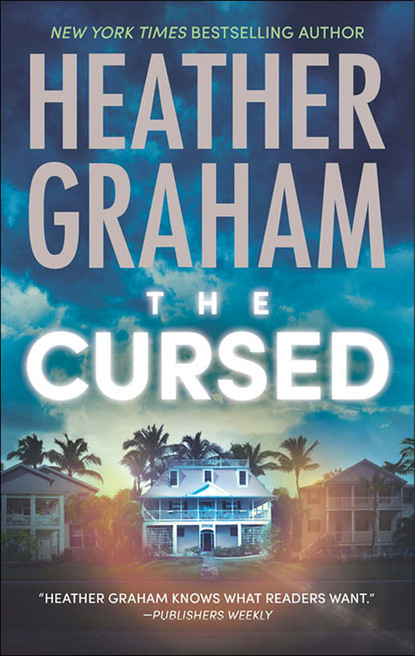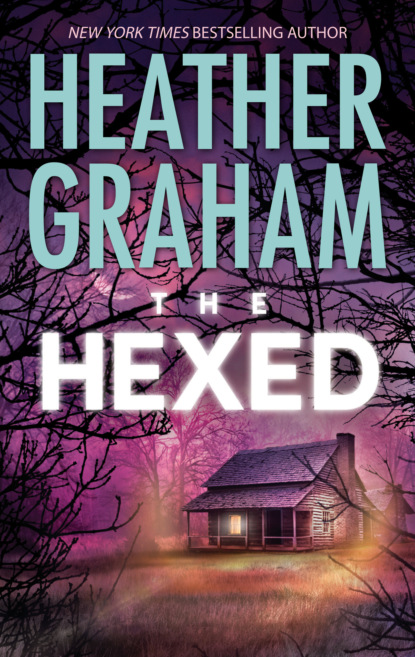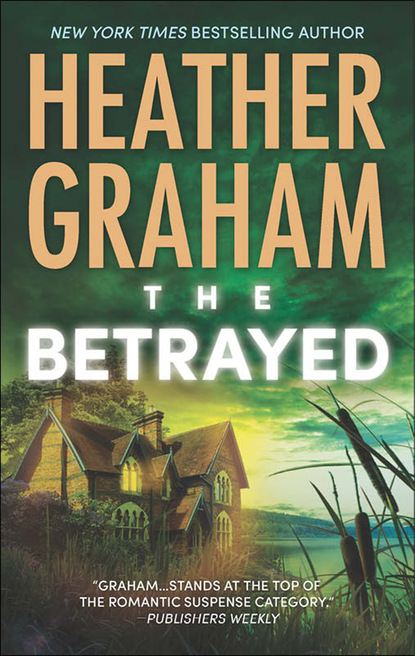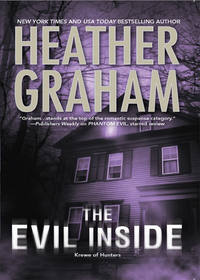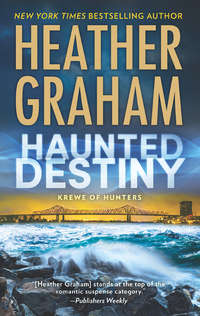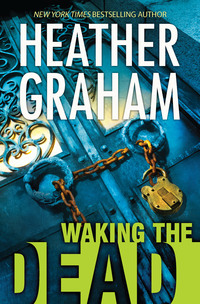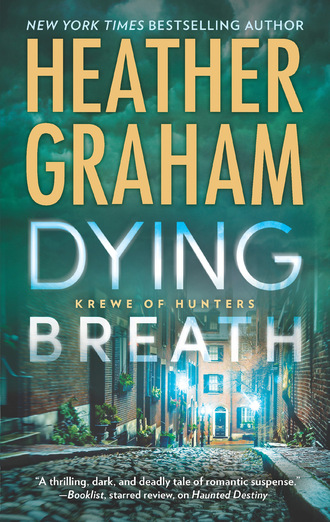
Полная версия
Dying Breath
“Whoa, those Puritans!” Cheryl said, shaking her head. “Still I don’t get it—when did they begin to die out? I mean, if everyone was banished or hanged for not being a Puritan...”
“All legal machinations, as well as religious. Charters came and went. James II of England was forced to abdicate his throne; William and Mary became King and Queen of England. They opened the colonies to others. Actually, it’s complicated, but—as in many cases—it had to do with politics and government,” Vickie said. “But in my mind, William and Mary made the greatest changes when they came to the throne of England in 1689 after the Glorious Revolution.”
“The Salem witch trials were 1692! So, William and Mary let that happen.”
Vickie nodded. “True. A large part of the world believed in the evil of witchcraft back then. Communications were very slow. William and Mary turned it over to their royal governor, William Phips. Phips set up the trials of oyer and terminer—which meant to see and to hear. When the dregs of society were being accused, William Stoughton, a tough old buzzard who wholeheartedly believed in Satan and witchcraft, allowed spectral evidence. Then suddenly everyone was being accused—including the governor’s wife. So, in a way, public opinion turned the tide. And Phips—when his wife was accused. Rather than going out with a bang, it rather all ended with a whimper. In the years following, there were many changes in the entire colony, by law, by religion and by people. Like most things, change came about slowly. And the land for King’s Chapel was actually taken during the rule of James II. Like I said, it had a lot to do with charters and laws and who was running what when. What’s actually good here is that execution for witchcraft was far less frequent in the colonies than in Europe. And, when we did create our American Constitution, we set forth a separation of church and state. That guaranteed freedom of religion when we became our own country.”
“Right. Now we just have weirdo cults!” Hardy said.
“True, but they don’t run the country,” Vickie said.
“Thank God, have you seen some of the stuff on some cults? Scary!” Cheryl said.
“Really scary,” Hardy said. “If spectral evidence was allowed in court and the dregs of society were killed first, we’d be goners,” he said. “I mean, heck, the right person just had to accuse you and your ass was in jail.”
“Pretty much—but you’re not the dregs of society. You’re about to be adults and choose your own course,” Vickie said. “There will always be room to improve, but laws do protect us now.”
“Speaking of us as a country, though, is Paul Revere here?”
The question was voiced by Art Groton. Like Hardy, he was nearly eighteen. He was tall, blond and wiry strong. In Vickie’s mind, he was just beginning to come out of his shell.
Art still seldom spoke. He had a truly sad personal history. Both parents had died in a blaze they’d created themselves while freebasing heroin. The uncle who had taken him in had beaten him; his psychiatrist suspected sexual abuse as well, but Art wouldn’t say. According to Art’s records, the uncle was also long dead due to drug abuse. Art seemed to have bounced around the system through several counties, but he now lived with the kindest couple Vickie knew working with foster children. And she was glad when they told her Art’s excursions with her were something that seemed to awaken him. He talked about them constantly; he said he wanted to make his way through college and work with the system as well.
Who better to understand an abused and neglected kid than an abused and neglected kid?
“Paul Revere,” Vickie told them, “is buried in the Granary cemetery along with Samuel Adams and John Hancock and many other notable people. Not far, of course. Boston is a small city—an old city! The three oldest burial grounds are King’s Chapel, where we are now, Copp’s Hill, and the Granary. All are on the Freedom Trail.”
“Yah, Boston!” Hardy said. “And we have the oldest college, right? Harvard?”
“Yes, Harvard is the oldest university,” Vickie agreed, “1636.”
“And then Yale, right?” Hardy asked.
Vickie shook her head and smiled. “Nope. Harvard was followed by the College of William and Mary in Williamsburg, Virginia, St. John’s College, Annapolis—and then Yale, 1701.”
Cheryl laughed and said, “Man, you are a walking encyclopedia, Miss Preston!”
“I just like history,” Vickie told her. She glanced at her watch, knowing it was time to break for the day. Her students returned to their various foster homes on their own after their meetings. It was part of their agreements with the Commonwealth of Massachusetts. She was careful, always, to make sure she finished up in time for them to make their way home.
“Next week,” she told them, “we’re touring the Paul Revere house, and I’ve arranged for dinner after at a great restaurant in Little Italy. Courtesy of an anonymous benefactor, I’ll have you know. Maybe someone who made it well in life—after having a rough start like many of you.”
“Cool!” Art called.
“Go! See you next week—meet right in front of the Paul Revere house.”
Her charges scattered, waving. Vickie watched them go. She liked each and every one of them, and deeply hoped she could make a positive change for their future.
As she made her own way to the street, she tried to keep focused on the entrance ahead.
There were days when the old cemetery was quiet—very quiet.
There were also days when she saw the dead walking. Mostly they just eyed her curiously—and suspiciously. Sometimes, someone would smile. She would smile in return, but hurry on. She wasn’t fond of seeing the dead—at least, not so many dead.
Dylan Ballantine—or the ghost of Dylan Ballantine—suddenly fell into step beside her. She glanced at him, arched a brow, shook her head, and hurried on.
“Hey! That was great,” he told her.
“I hope so. The plan is that I get them really interested in history or something useful,” she murmured.
An old couple, following the Freedom Trail, most probably, paused and looked at her, frowning. Of course. It appeared to them that she was talking to herself.
“Please, Dylan, let me get out of here, huh?” she asked.
“Of course, of course,” he said.
But he wasn’t going away.
It wasn’t that she wasn’t accustomed to seeing Dylan now.
They were old friends.
They’d established rules.
He’d terrified her when he continued to appear to her years before—even when she realized that she and little Noah might well have been murdered if it hadn’t been for Dylan’s spiritual presence. He’d saved them; he’d gotten her and the baby out of the house when a serial killer had been watching them, biding his time, playing with them as he waited, amused, before showing himself to torture and kill them—as he had other victims before.
She could still feel a cold shiver of fear grip her heart when she thought back to that night.
But she’d had to put that behind her. Despite Dylan appearing here and there—startling and scaring her terribly at first, then begging for her recognition and friendship, and then actually seeming to take up residence with her when she’d headed down to NYU—she’d gotten dual degrees in history and literature. She’d published her first book on the tombstones of New England and was happily writing one on the decline of Puritanism in New England. She was making herself be very fair—she tended to hate the codes by which they had lived and their absolute lack of tolerance for others.
They were, on the one side, her ancestors. Her mother’s grandmother had come over from Ireland, and her great-grandfather had been a fresh-off-the boat Norwegian actor. But her father’s family could trace roots back to the mid-1600s; they’d arrived on a ship just a few decades after the arrival of the Mayflower. Dylan loved to tease her about that.
His family had actually been New Yorkers. Sane.
“Don’t you have someone better to haunt?” she asked him.
He shook his head gravely. “Not today. Followed you to the cemetery, thinking I might find someone to chat up. Other ghosts, you know. People who lived in different decades and centuries can be really interesting. But whoa! Those people. Straight-laced to the core. They don’t seem to want to talk to strangers.”
“Don’t go blaming it all on the Puritans,” Vickie told him. “This cemetery also houses those who died well after the Puritan days.”
“Yeah, well, it’s no fun to hang around a cemetery anyway. Unless you’re you, of course, looking up the lives of all those who came before!”
“I’m ignoring you!” Vickie said, hurrying on ahead.
Naturally, he caught up to her.
On the street, she looked around, and then turned to him, speaking firmly. “Hey! I’m going to my parents’ place. If you come, you behave. You understand.”
He grinned. Dylan was still not quite eighteen. Charming, boyish and handsome. If she was going to have a continual haunt—or a crazed personality—she could have been plagued by a far worse ghost, she was certain. But some days, he was truly and mischievously out to make her appear to have gone daft.
“Sure,” he said.
A cop car went by, sirens blazing. And then another. Dylan looked after the cop cars.
“Hey, something is going down—over by the Granary cemetery. Want to check it out?”
“No,” she said flatly. “You feel free to do so.”
“I will,” he told her.
“See you then,” she said.
He laughed. “Oh, yeah. Don’t worry. I know where your parents live.”
“Yes, of course, you do,” she said.
It wasn’t much of a walk to her parents’ home in Little Italy. They’d moved when she’d gone to college, but they hadn’t moved far. They were now in a refurbished building that dated back to the 1820s but had been meticulously updated and turned into state-of-the-art condos.
They loved it; her father was now retired after thirty years as a history professor at Harvard, and her mom had left her position as first-grade teacher just last year. Their apartment had everything they could desire and they were close to all the restaurants they loved—especially a certain cannoli shop.
When Vickie arrived, the two were studying a travel website.
“Italy! The real thing,” Lucy Preston said, her smile wide and her words excited as she opened the door. “Dad and I are really doing it! Rome, Florence, Venice...we’re going! Doing the booking right now.”
“Great!” Vickie told her mother, giving her a hug.
“Want to come?” Lucy asked.
“No,” Vickie said with a laugh. “Join you two lovebirds on a romantic trip? Nope, thank you, but no thank you. Besides, you two kids are retired now. You can come and go as you like.”
“That wouldn’t be a bad idea,” her dad, Philip, said. “It would really get you away from Jared.”
“That terrible man!” her mother said.
“Mom, he isn’t a terrible man. He’s just—not right for me.”
“Well, you could come to Italy for a few days. I mean, you’re writing now. You can write anywhere.”
“Ah, but I can’t find those persnickety Puritans just anywhere, can I? My research is here, in this area, Mom, you know that.”
“We’ve created a monster, Lucy,” her dad said, coming up behind her mom. “She has a work ethic, dear Lord!” he teased, kissing her cheek. “Seriously, though? You’d love this trip, Vickie. I know. You would absolutely love it! You could do research in Italy.”
“Dad, the Puritans came from England, not Italy.”
“Ahha! But later, Italians flocked in and now, we’re living in what they call Little Italy!” her father said triumphantly.
“That’s not the point. You two need to go on alone and have a wonderful and really romantic trip!”
Vickie smiled. She loved her parents deeply. They were so savvy in many ways, and just a little bit clueless in others. They sometimes reminded her of a pair of children—incredibly responsible children, but in their enthusiasm, they frequently appeared on fire. As parents went, they were comparatively young and in excellent health. The trip they were planning was to celebrate the fact that they’d both turn sixty that year. In her mind, her dad—the esteemed Dr. Philip Preston—was as handsome and cool-looking as a rogue pirate—he kept his head clean-shaven and wore a tiny gold stud in one ear. He was well over six feet tall, lean and wiry. Her mom, on the other hand, was about five-two with a froth of blond curls and cat’s eyes—a hazel color that changed constantly. Her parents were attractive and energetic and she could just see the two of them cuddling in the back of a gondola.
Nope—she definitely didn’t want to go with them!
“I’m excited for you two,” she said.
“Coffee is on—want some?” her dad asked.
“Love it!”
“Come see what we’re planning,” her mother told her, urging her over to the dining room table where they’d set up their computer.
“Venice!” her mom said. “We’ll stay right on St. Mark’s Square. And in Rome, well you won’t believe this, but one of dad’s old students works as a tour guide and he’s going to take us on a special tour of the Forum and the Coliseum, and we’re meeting friends at a little restaurant near the Vatican... You know, you could meet us for just part of the trip, if you wanted.”
“My darling parents, I’m delighted that your health is great and that you’re off on an adventure,” Vickie said. “It will be wonderful. How long are you going for?”
“Twenty-one days,” her dad said. “I know you love Italy. It was all you talked about after that college trip you took. But,” he said, smiling at his wife, “I think you’re right to stay home. We both love that you’re working with young people now. It’s great for them.”
“I do love Italy. And I’ll go back with you one day,” she promised them.
“You staying here...does it have anything to do with Jared Norton?” he mother asked.
Vickie was surprised by the question.
“Mom, no—I’m just busy right now. And you guys need time to enjoy each other. Italy, so romantic! You two need to go. I need to stay and work.”
Her mother sighed deeply, and then accepted her words.
“Come on, then! Coffee. And, of course, I’ve got a pie,” her mom said. “Oh, wait—we should have dinner first. You’re here! Oh, and don’t make faces at me. I know I can’t really cook, but I do make the best clam chowder to be found anywhere, even you say that!”
Lucy grinned at her daughter. And Vickie laughed. “Yep, your clam chowder is to die for, it is, Mom. I’m totally wiped out, though.”
Naturally, her mom served up the clam chowder anyway. Vickie had a spoonful almost to her mouth when the ghost of Dylan Ballantine came streaking through the walls with a trail of mist, not unlike a dust storm in a cartoon.
Vickie dropped her spoon, startled. Clam chowder hopped out of the bowl in little droplets.
Her mother and father stared at her; then her mother shivered and frowned and looked uneasily about the room.
“Sorry! Clumsy me,” Vickie said.
Dylan paid no mind to her words or her parents. He was intent on her attention.
“Vickie, Vickie, you’ve got to help, you’ve got to do something. Dammit, Vickie!”
She kept smiling at her confused parents, refusing to look in his direction.
“Vickie, that killer, that Undertaker. He’s taken my mother, Vickie. You’ve got to do something!”
She couldn’t help herself. She jerked around to stare at him, horrified.
“Yes! They found the last woman who’d gone missing and right after, my dad called in about my mom. We have to find her fast, Vickie. Somehow, we have to find her. Now. Before he kills her, too! Please, Vickie, don’t let this happen to my mother!”
He was still speaking when there was a knock at the door. A heavy knock, pounding and insistent.
“FBI! Folks, please open up!” came a voice.
“What in the world?”
Philip Preston rose and strode to the door; he looked through the peephole before frowning and opening it.
Two men stepped in.
The first was tall and dark and had the high cheekbones and golden skin tone of a Native American, along with striking blue eyes.
The second man...
Vickie had started to rise. She froze by the table.
She knew him.
He had aged nine years, of course. His features were still striking, but they seemed cleaner cut, leaner, more rugged. His shoulders were broader. He’d been wearing the blue uniform of the Boston Police Department that day; now he was in a blue suit he wore with casual ease.
Yet she remembered him so clearly. He’d seen her...and he’d warned her to get down. He’d taken a shot, and he’d disarmed the man who had been after her and little Noah on that fateful day. He’d been tall and strong and ridiculously macho and beautiful to her. Detectives had interviewed her, but he’d been there with coffee and a blanket, and he’d held her when she started to shake and had nearly fallen because she was so nervous. He’d been called to be there when she brokenly described everything that had happened that day.
She had thanked him for saving her.
“But it wasn’t really me, was it?” he’d asked her.
She hadn’t answered; she’d never known what to say, how much he knew, how much he had seen...if maybe he actually spoke to the dead himself.
She’d watched him interviewed on the news. He’d stopped a stone-cold killer. He had done nothing any man on the beat wouldn’t have done, he had told reporters. He’d just been there when escaped convict Bertram Aldridge had burst out of the Ballantine house.
She could have been brutally murdered that day. Bertram Aldridge had come after her with a gun. That wasn’t his customary means of murder. He liked to slice up his victims and write messages in their blood. He liked to write notes to the police and smear them with blood.
She had been lucky; so damned lucky. Time had allowed her to walk and talk normally again. To head down to NYC for college, to take work there as a researcher, but now...
She’d come home. And there he was. Griffin Pryce. He was standing next to the tall dark-haired man who was explaining that Chrissy Ballantine had been taken and they’d like to speak with Victoria for just a few minutes.
As Vickie continued to stare while her father explained that she hadn’t worked for the Ballantine family since she’d been in college, she saw that Dylan had gone to the men, that he was speaking a blue streak at the same time.
“You have to find my mother. This isn’t fair. My family has lost too much. Whatever the hell it takes, you have to find my mother.”
It was almost as if Griffin Pryce had heard him. Because he spoke next, almost interrupting Philip Preston.
“We will find Chrissy Ballantine. We will,” he said with conviction.
“But what makes you think that Vickie could help?” her father asked, frustrated.
And then Griffin Pryce looked at her. His eyes were older, harder than she remembered, though still determined and macho and beautiful and...
“Because her name is part of the clue that was sent to the media,” he said softly.
2
Taker—as he had determined his code name to be—stood watching the commotion. Cops, reporters, medics—you name it.
It was good. So good. The woman, it seemed, was alive. People everywhere were talking. A tall blonde next to him smiled at him radiantly. “Can you believe it? They saved her! Dug her right out of the ground—and saved her!”
“Hallelujah,” he said, nodding seriously. “Thank God!”
The blonde moved on.
He became aware that Under was coming to stand next to him. Under thought that being Under meant being the leader—and that Taker had agreed with that, since, in the name the press had given them—Undertaker—Under came first. Taker knew that Under was a lackey; he was the smart one. He was the one with the plan. And—though he refrained from saying it—being a Taker was far better than being Under.
No matter. His accomplice was good—and loyal. Loyal, he knew, mattered most.
“So, they saved her ass!” Under said.
“Doesn’t matter, does it?” Taker asked.
“Not when we’ve got a big one all boxed up!” Under said, and laughed.
Taker started moving down the street. Under followed in his footsteps.
“Think we’ll get to see what happens with that one? I got to admit, I’m hoping your clue doesn’t work. That’s one I’d love to see go bad.”
“Yeah,” Taker agreed. “But hey, not the prize we’re really looking for, right?”
“But a thread to the prize,” Under said, and paused in the street, smiling as they watched the growing throng of reporters in the area. “Love this, love it, love it...and best of all...”
“Best of all, what?” Taker asked.
Under grinned. “We’ve got the dough to keeping going and going.” Under paused, frowning. “Hey, what happens when we’ve taken down the prize, huh? I mean, this is cool, really cool. But I mean, you have an objective. And that’s okay. But...”
“You change. You change your direction. Your style, your signature. And start all over again. You become someone else.”
“So, this never has to end?”
“No, it never has to end,” Taker said.
It would end, of course. He did have an objective. And as to his good friend Under...
Well, friendships often—and tragically—came to an end.
But for now...
His eye was on the prize. And as for Under...at the moment, Under was loyal, like a lapdog, and had assets and abilities Taker did not. Under could, upon occasion, behave in a superior manner, but...
Really. It was all just a matter of time.
* * *
“Where Preston ran and good old Paul rode.”
Vickie sat frozen in her chair as Griffin Pryce read the words.
The two men had declined to take seats; therefore, her parents had refused to sit again. They were like a pair of puppies, blindsided by a couple of whacks to the head.
Not that Vickie felt any different. Or, perhaps, she did. She felt frozen.
“This is wrong, just wrong,” Philip Preston said. “I mean, Preston is not an uncommon name. This clue may not refer to Vickie in any way. You’re asking my daughter to become involved with a killer. A killer who might target her. You can’t mean—”
“Yes, Mr. Preston,” Jackson Crow said.
Vickie’s father was not ready to give in. “Victoria was almost killed once. That man, that awful man—it’s him? Aldridge! Bertram Aldridge. She won’t be involved. I’ll get her out of the country, I’ll—”
“Bertram Aldridge is sitting in prison,” Griffin said. “He will be there for life.”
“This is someone who likes to taunt the police with notes,” Jackson Crow said. “Most probably, they simply remembered and took her name from the newspapers or media at the time.”
“They can’t mean Vickie,” her mother murmured.
“They mean Vickie,” Griffin added quietly.
“Oh, no, no, no, no...” the ghost of Dylan Ballantine said, hands pressed to his temples. “My mom, they’re talking about my mom.”
“I know you!” Vickie’s mother gasped suddenly. “You—you’re Officer Pryce. You were the cop who was there the day that...”
“The day I was nearly killed, Mom,” Vickie said.
“Yes, yes, you’ve been at our home before, and we’re grateful, but...no, not again. My husband is right. You’ll get Vickie targeted by this sick person,” Lucy replied.
“She may help save a woman’s life. We don’t like bringing anyone into harm’s way, Mrs. Preston,” Griffin said. “But I’m afraid that whoever is responsible, they know about the attempt by Bertram Aldridge on Vickie’s life. The Ballantine house is near the Paul Revere house. And Vickie ran from that house.”
“Look!” Philip Preston said angrily, “I won’t have it! I won’t have you use her.”
“Dad!” she said, standing up suddenly. “Dad, please. I know you’re talking out of love for me. But I’m an adult. I can make my own choices. And if there’s anything I can do, I’m willing to do it.”
“No!” her mother said, her face going as pale as ash.


